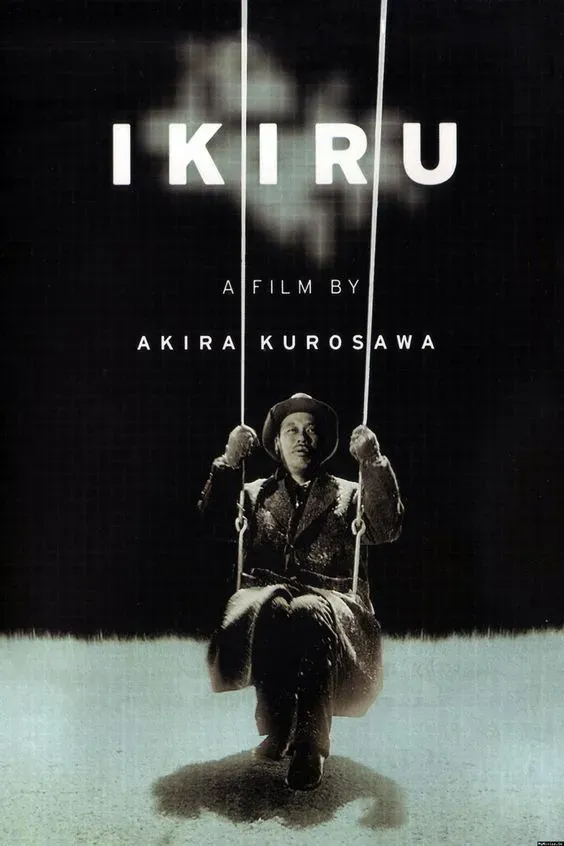Ikiru (1952)

Ikiru (1952) tells the quietly powerful story of Kanji Watanabe, a long‑serving city bureaucrat whose life of routine and empty paperwork is upended when he is diagnosed with terminal stomach cancer. Faced with likely less than a year to live, Watanabe moves from depression into a search for meaning: a night out with a novelist, an awkward attempt at intimacy with a younger colleague, and finally a determined effort to use his position to create something that will outlast him — the construction of a children’s playground in a neglected quarter of the city. Watching Ikiru is a contemplative, deeply human experience. The film unfolds at an unhurried pace, alternating between quiet, intimate moments of personal awakening and sober, sometimes painfully realistic portrayals of bureaucratic inertia. You’ll witness a powerful central performance (Takashi Shimura) as a man learning, slowly and painfully, what it means to truly live; scenes of private revelation are followed by sober reckonings among his co‑workers after his death, who debate whether they can honor his example or will slip back into complacency. Tone and themes: melancholy, compassion, and moral urgency. Ikiru asks big questions about mortality, meaningful action, and how one person’s small, principled stand can cut through institutional indifference. Expect to come away moved and reflective — the film is less about dramatic twists and more about emotional truth, slow transformation, and the quiet dignity of a man determined to leave a humane legacy.
Actors: Takashi Shimura, Nobuo Kaneko, Shin'ichi Himori
Director: Akira Kurosawa
Runtime: 143 min
Genre: Drama
92
/100
8.3
/10
![]() 8.8
/10
8.8
/10